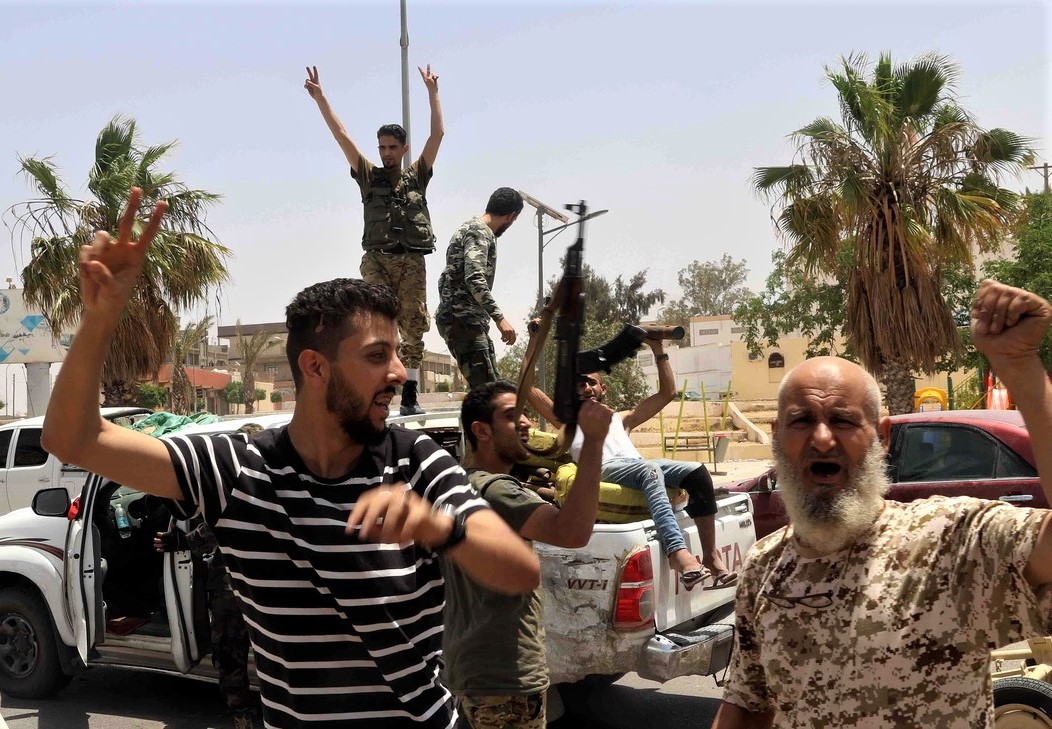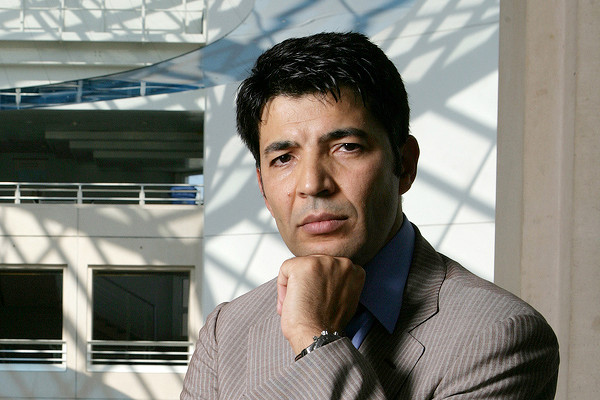
Warning from Geneva: perpetrators of Libyan atrocities will be held accountable

As international elements propel the Libyan conflict further into chaos, the United Nations Human Rights Council last week resolved to send a fact-finding mission to Libya to document alleged war crimes committed in the country since 2016. The ad hoc resolution was supported by Switzerland, which has long been committed to the fight against impunity. Hasni Abidi, a political scientist who specialises in Arab world affairs, gives his insights.
The adoption of the UN resolution comes at a critical moment of the war in Libya, following efforts by eastern Libyan strongman Marshal Khalifa Haftar to seize Tripoli and take power in April 2019. The offensive was supported by Egypt, the United Arab Emirates, Russia, and — less openly — by France. But the entry of Turkey, which sent weapons including high performance drones, and of Syrian militias into the game, enabled Libya’s Government of National Accord — led by Faïez al-Sarraj and recognised by the United Nations in March 2016 — to repel Haftar’s assault and take back control of several towns close to Tripoli during the course of this year.
Adopted unanimously by the UN rights council at the end of its 43rd session on June 22, the resolution was presented by the African Union (AU) and co-sponsored by Germany, Spain, Turkey and Qatar. It calls on High Commissioner for Human Rights Michelle Bachelet to “immediately establish and dispatch a fact-finding mission to Libya […] to document alleged violations and abuses of international human rights law and international humanitarian law by all parties in Libya since the beginning of 2016 […] with a view to ensuring that the perpetrators of violations or abuses of international human rights law and international humanitarian law are held accountable”.

swissinfo.ch: What is the significance of this resolution in the context of this conflict which seems to be spiralling out of control?
Hasni Abidi: In this period of extreme tension around Tripoli and the town of Sirte, the deterioration of the security situation, fuelled by the presence of foreign elements like the mercenaries of the Russian group Wagner or the Syrian militias sent by Turkey, complicates the internal situation in Libya. Especially since the absence of the rule of law is total [and] the two governments which are fighting each other are incapable of facing up to the risk of the intensification of the fight and the massive arrival of foreign players.
All this has accelerated the increase of criminality, war crimes and crimes against humanity, as shown by the recent discovery of mass graves.
This resolution is a response to this deterioration of the security situation and its humanitarian consequences. It’s also a response to a paradigm shift and a timid diplomatic revival after the victory of the Tripoli government and the retreat of Marshal Haftar’s forces.
After the failure of peace talks led by the UN and the resignation in March of Ghassan Salamé as head of the United Nations Support Mission in Libya, the African Union and associated countries are trying to fill the void, this time in terms of international law.
The council’s proposal for an independent investigation mechanism has been supported by Switzerland since early last year. Last week, the Swiss representative at the council, Samira Cizero Ntasano, underlined Bern’s concern about the intensification of hostilities and violations of international humanitarian law “by all parties to the conflict”. To address this, “Switzerland supports the establishment of a fact-finding mechanism to ensure accountability and break the cycle of impunity”.
The diplomat added: “The conflict has led to increased repression in both Tripoli and Benghazi. Switzerland is concerned about the lack of protection for migrants and refugees. (…) Arbitrary detention, sexual violence, forced labour and other forms of human trafficking, as well as the inhuman conditions in detention centres are unacceptable and must be stopped immediately”.
swissinfo.ch: Faïez al-Sarraj’s Libyan government is the only one recognised by the UN; does this recognition carry any weight?
H.A.: The Libyans cannot escape the conflict. Libya has become hostage to alliances and arrangements between the powers implicated in this war. But it is also hostage to a war of influence waged by a number of important regional powers. This resolution is a way of reminding that the government of Marshal Haftar is illegitimate, that it is outside of the law, all the more so with the presence of mercenaries who do not obey any rules in terms of law or international treaties.
There has been a lot of criticism of the international silence — and European silence in particular — on this foreign interference while Libya was delivered to militiamen who are little concerned by the Geneva Conventions, in particular in the territories controlled by Marshal Haftar. This motivated the resolution’s authors who leaned on the international recognition of the government in Tripoli, and which was rather presented as a victim.
swissinfo.ch: The supporters of Marshal Haftar, notably France, present him as the best defence against the Islamists, essentially the movement of the Muslim Brotherhood. Is the danger real?
H.A.: Invoking the Islamist danger is a mobilising element. Marshal Haftar has overexploited this argument to garner international support. And it is a fact that in the west of Libya, the Islamic presence is significant with the Muslim Brotherhood and other Islamists who have become political actors. But Marshal Haftar also has a large militia led by radical Islamists on his side. And Faïez Sarraj does not have the means to open an internal front with the militiamen who support him today.
The fact remains that the ideological question is not the decisive element in this war which would explain this frenetic competition between foreign powers. It is more an economic question linked to the important energy resources of the country and the strategic position of Libya.
Translated from French by Sophie Douez

In compliance with the JTI standards
More: SWI swissinfo.ch certified by the Journalism Trust Initiative


























You can find an overview of ongoing debates with our journalists here . Please join us!
If you want to start a conversation about a topic raised in this article or want to report factual errors, email us at english@swissinfo.ch.